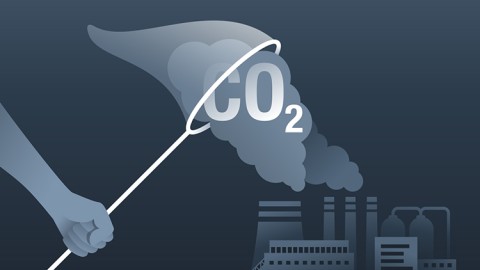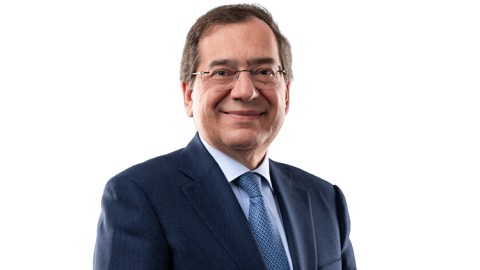Health, safety, and environment (HSE) was one of the hot topics during EGYPS 2020), where an HSE conference addressed some of the most significant issues related to promoting HSE culture among employees in the oil and gas sector. This was delivered through three panel discussions, a rapid-fire session, and concluded by an HSE Excellence in Energy Awards Ceremony.
The conference began with a keynote speech by Her Excellency, Dr. Yasmine Fouad, the Egyptian Minister of Environment. Fouad focused on the global environment, explaining that overcoming all obstacles requires “implementing a win- win approach [which focuses on] global environmental challenges, [and proposes] some keynote solutions.”
Speaking of climate change, the minister clarified that the energy sector is one of the biggest contributors to this issue. To face it, “so many things were done especially in the last five years since the Paris Agreement came into force,” she said.
Fouad explained that in order to control climate change, “we need to think of it as a developmental challenge not as an environmental challenge because it hits us all in the country.” She remarked that “from that perspective, we created a national council for climate change, headed by the Prime Minister.”
The minister also tackled biodiversity, clarifying that “there is a direct impact on diversity from the mining sector.” She stressed that “it is not true to tackle biodiversity, away from the climate change, away from the land,” highlighting that “from that perspective, Egypt announced a global initiative based on an ecosystem-based approach, which was announced by the Egyptian President, Abdel Fattah El Sisi in 2018, to start looking at linking climate change, biodiversity, and land degradation.”
Furthermore, the minister stressed on the importance of considering all environmental aspects from an economic point of view, in regard to “how much money that a company is spending if there is a resource efficiency plan, what will happen if you convert your production into a clean technology, and how much you will save from what you are putting in this company,” she explained. This message mainly aims at encouraging the creation of a platform, so that all incidents over various sectors can be managed.
An Environmental Point of View
The conference continued with opening remarks by Colby Fuser, Vice President for Egypt and Libya at Halliburton. Fuser pointed out that from an environmental point of view, there is a sufficient amount of chemicals around, in addition to resources that directly impact the environment. He clarified that it is crucial that the environmental side becomes more efficient and effective. Fuser concluded his speech, stressing that “we do find somethings that happen, let us spend some more time on how to investigate them, let us spend some more time on fixing the problems and move forward.”
A Panel to Raise HSE Awareness
Afterward, the conference’s first panel discussion commenced, in the presence of the Minister of Environment, on ‘The Importance of Raising Personnel Awareness within Your Organisation.’ The panel was moderated by Olav Skår, Director of Health, Safety, Security, Subsea and Wells at the International Association of Oil & Gas Producers (IOGP). The panel comprised five industry figures; Lucien Bianchi, Global Director of HSE and Service Quality at Halliburton; Ehab Ali, Chairman Assistant for HSE at Khalda Petroleum; Leigh-Ann Russell, Head of Procurement and Supply Chain Management (SCM) Upstream at BP; Sergey Peresypkin, Director of HSE, MENAT and India at Baker Hughes; and Iman Hill, COO at Energean.
Skår initiated the discussion, stating that “as an organisation, in order to drag focus, you need to know the co-state of affaires of your business. You need to understand where you want to be,” clarifying that successful leaders will manage to translate their goals into effective steps to accomplish them.
Skår asked the panellists about their approaches to accomplish their goals on HSE. Hill commented that it is important to “collaborate with each other on all aspects of safety. It is not a competitive field; for me, it is a long journey.”
For Bianchi, he stated that Halliburton’s main goal is accomplishing Goal Zero, which means no harm and all employees are working safely as “everyone has to have the confidence to succeed in doing his work not only on the business level, but also on the personal level.”
Speaking of the vital role of human performance, Russell noted that “we want each single person who works on our facilities go back home, in the way they came to work that day. For the environment, we need to adopt the operations that will not create any unnecessary damage to the environment.” She added that 80% of safety incidents are caused by the human factor, which means that their organisations’ systems need to be improved.
Moreover, Russell mentioned the vital role of the International Association of Oil & Gas Producers (IOGP), in addition to importance of the life-saving rules. These will help create standards that work across the industry in a way that make it easier for employees to return home safely.
When it comes to Baker Hughes, Peresypkin remarked that all companies share the target-zero goal, which is all about the language between the top management and employees to help boost employees’ performance. This requires paying a great deal of attention to overcoming organisations’ weaknesses. Thus, several elements need to be addressed including “the leadership of an organisation; they need to understand human performance and integrating activities to build the human capacity.”
Speaking of HSE policies in Egypt, Ali clarified that he always starts by addressing HSE by a supportive documentation system which set the work structure and policies. In addition, he pays a great deal of attention to the lifesaving rules, as “top management are committed to HSE as well as accomplishing their goals.” He added that in order to change the HSE culture, it needs to be implemented by each and every member of the organisation.
HSE Leadership
The second panel, moderated by Martin Rodriguez-Villa Foerster, Country Director, witnessed an interesting discussion on the importance of leadership commitment. Luciano Scataglini, Global Senior Knowledge Owner at Eni, said that the main characteristics of leadership are to act by example and to demonstrate commitment in all safety matters.
Discussing HSE transformations in the oil and gas sector, Mohamed Kermoud, Global Vice President HSE at Schlumberger, pointed out the effects of differential leadership styles on promoting HSE culture, noting that with leadership comes authority, but not influence. Results will not be achieved if one is not true to oneself and inspirational to others, instead of being authoritative.
Ahmed Soltan, Managing Director, Bilfinger-Tebodin, gave out practical advice on tackling the environmental impact of the industry, noting that “we need to give the same attention to the environment as we do to safety.”
Chee Tsong Chok, GM Safety and Environment, Conventional Oil and Gas at Shell, advised that “if there is a culture or a behaviour that you want to promote,” then organizations should be notified that this is something to you need to work on.
Moving on to the final and third panel, Irene Eleftheriou, Project Engineer/HSSE Officer at Cyprus Hydrocarbons Company, gave a presentation on driving sustainable environmental performance within the oil and gas sector.
Sarimah Talib, Head of Sustainable Development, PETRONAS gave remarks on the modification of operations that align with sustainability, adding that Petronas is adhering to its public commitment to reduce flaring.
On Egypt’s contribution to the United Nations (UN) sustainability goals, Ahmed Abdrabo, Assistant Chief of Petroleum Central Department at the Ministry of Petroleum and Mineral Resources, said that Egypt has recognised three goals. These goals include providing affordable and clean energy, being part of the Paris agreement, and responsible production and consumption.
Ashraf Ramadan, Assistant Chairman for Environment at the Egyptian Natural Gas Holding Company (EGAS), discussed the company’s car conversion noting that “we have already converted cars to use natural gas instead of liquid fuel, which led to reducing carbon dioxide (CO2) emissions.” He additionally discussed the company’s projects with different international oil companies (IOCs) which add further benefits to the oil and gas sector.
Rapid-fire Session
A rapid-fire session showcased the different HSE challenges through four presentations. The first presentation was given by Ahmed Roustom, Risk Assessment and OHS Technical Studies Assistant General Manager at the Egyptian Natural Gas Company (GASCO), tackling how to avoid disasters in the utmost safe process.
The second presentation was on improving refineries’ HSE performance through a holistic safety management mode. It was presented by John Fotopoulos, Refinery HSE Director at Hellenic Petroleum.
Yasser Nashaat, Deputy Managing Director for Operations and Engineering at TAQA Arabia, delivered the third presentation on developing strategies to improve road safety and decrease the number of accidents.
Finally , Andreas Zacharia, Operations Officer Air Forces at Cyprus Joint Rescue Coordination Centre, shared international HSE best practices from international companies and neighbouring countries.








